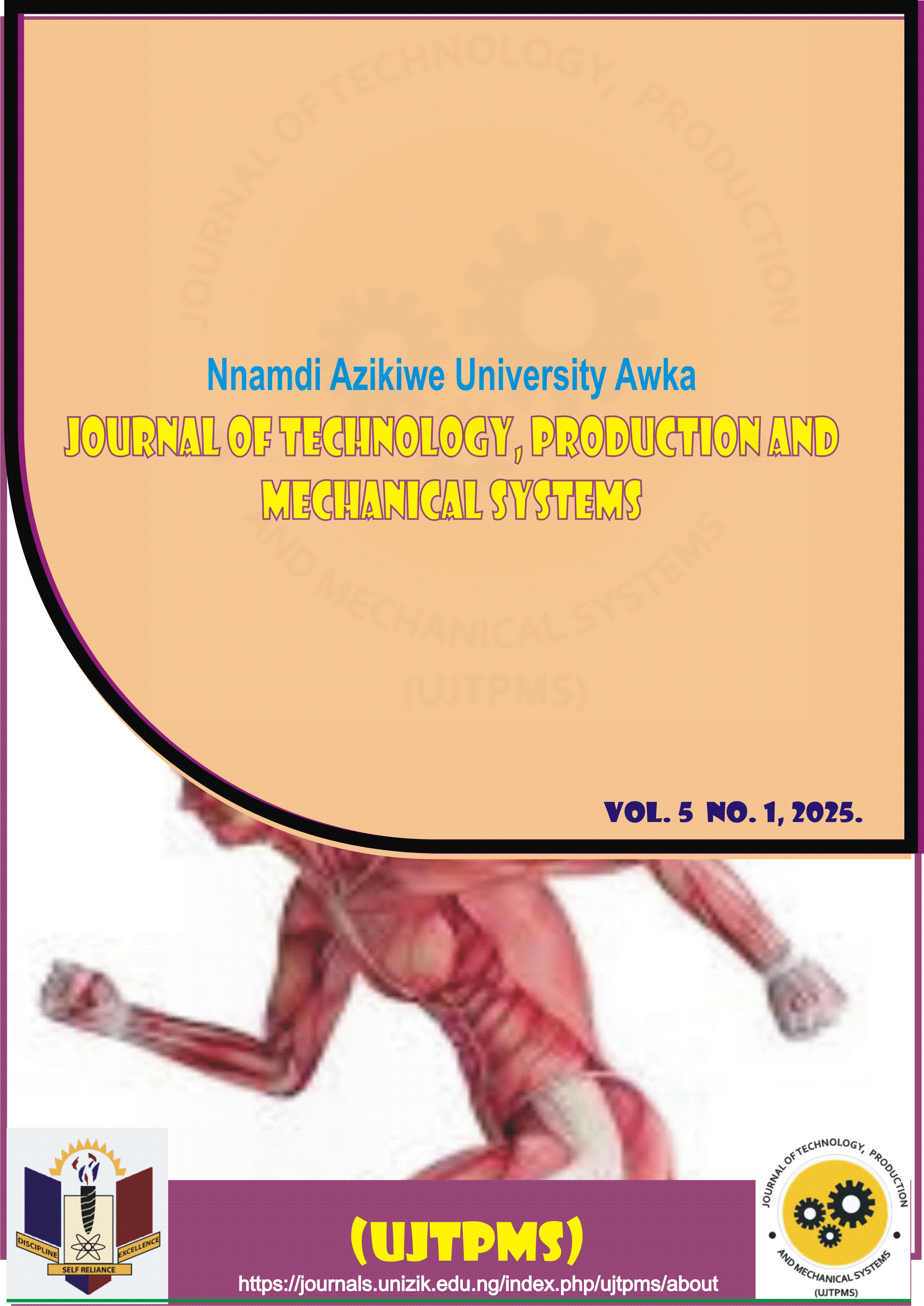Influence of particle size and loading variations on the tensile properties of Newbouldia laevis fibre particle reinforced polyester composite
Keywords:
Newbouldia laevis; Tensile test; Fibre particle; Reinforced composite; Particle size; Particle loading.Abstract
This study investigated the tensile properties of Newbouldia laevis fibre particle-reinforced polyester composites as potential sustainable eco-friendly replacement materials for synthetic fibres in lightweight polymer composite applications. The bulk density of the fibre was found to be 0.098 g/cm3. The tensile properties of fibre particle polyester composites fabricated on the basis of varying fibre particle sizes and fibre particle loading were examined. The results revealed an increase in the tensile and yield strengths increased as the particle size decreased. Additionally, the tensile strength, yield strength, and elastic modulus decreased as the fibre particle loading increased. Furthermore, the maximum tensile and yield strengths obtained from the 10 wt% fibre particle-loaded composite were 31.35 N/mm2 and 31.277 N/mm2, respectively. The results obtained from this study reveal that Newbouldia laevis fibre particles are suitable reinforcement biomaterials for lightweight composite applications
Downloads
Published
Issue
Section
License
Copyright (c) 2025 Authors

This work is licensed under a Creative Commons Attribution-NonCommercial 4.0 International License.






